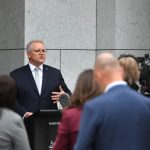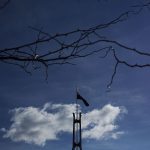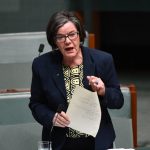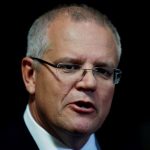The Edward Snowden impact on intelligence
There has been some controversy about Edward Snowden’s motives to share classified information regarding the National Security Agency with the press. Dr Patrick Walsh, senior lecturer for intelligence and security studies at Charles Sturt University, speculates about the consequences of this intelligence leak.
Snowden’s leak of highly sensitive information from America’s arguably most secret intelligence agency – the National Security Agency (NSA) has yet again brought to the headlines debates about where the boundary lies between privacy and national security. Public knowledge about Snowden’s leaks came the same week that Private Bradley Manning went on trial for his leaks of reams of classified intelligence to Wikileaks. It is difficult to assess which of these episodes is the most damaging to national security. Manning’s was to some extent as it resulted in Wikileaks distributing information containing the names of sources the US military were using in Afghanistan. It may take a lot longer to know the damage caused by Snowden’s efforts. Given that the material came directly from the NSA, the public may never know.
Leakages of this sort throw up all sorts of questions. What do we know about the leaker, what were their motivations? Is he a whistleblower who only has the public’s interest at heart about some constitutional overreach by the US intelligence machinery? And as mentioned above, how does the leak affect intelligence agencies being able to do their job of protecting citizens?
On the first question, much has already been written – in many ways Snowden seems like a pretty unremarkable individual who has served in various positions in the US intelligence community – finally ending up as a contractor for the NSA working for the national security consultancy company Booz Allen Hamilton. On the second question, is he a whistleblower acting like the canary in the coal mine, alerting the public to the last gasps of democracy? Under whistleblower’s legislation before the Australian Parliament he is not a whistleblower, as he has not sought to alert his supervisors to his grievance before going public, and such legislation has national security exemptions anyway. While he and others may see him as a whistleblower or even a hero, I think his actions are misguided and unhelpful, because they provide unnecessary reminders to terrorists and others that would seek to harm our way of life about the ways intelligence seeks to get early warning about their intentions. We don’t want to give these people free kicks.
There is no question the US will seek his extradition from whatever country he seeks refuge, whether that it is China or even Iceland. His actions though have provided the opportunity for senior officials in the US intelligence community to explain (more than they have ever in the past) the legal and accountability checks that go into the electronic surveillance of US citizens and foreign nationals. In recent days NSA chief General Alexander has made it known publicly that there have been recently at least 40 cases where this proactive collection of phone numbers and interception of emails have resulted in the prevention of terrorist attacks. Perhaps a lot of this explanation without the operational details of each case could have been made earlier to the public to reassure them.
This case also will prompt a review of the impact of privacy in collecting meta-data (ie phone numbers, names but not the content of phone calls) by US citizens. There is already talk of perhaps the US intelligence community asking the major phone providers to keep phone records for five years rather than these being stored by the NSA – though FBI Director Robert Mueller has said this will slow down terrorism investigations. This story is still unfolding, but this much is true – there are lots of checks and balances in these surveillance programs already. If they can be improved, so much the better, but we are not sliding into the abyss of tyranny. And everyone should take a deep breath.
Dr Patrick F Walsh is Associate Professor for Intelligence and Security Studies at the Australian Graduate School of Policing and Security, Charles Sturt University. He is a former intelligence officer and is consulted on intelligence reform issues. His book, Intelligence and Intelligence Analysis (Routledge 2011) examines intelligence reform in Australia, Canada, US, UK and NZ after 9/11.















